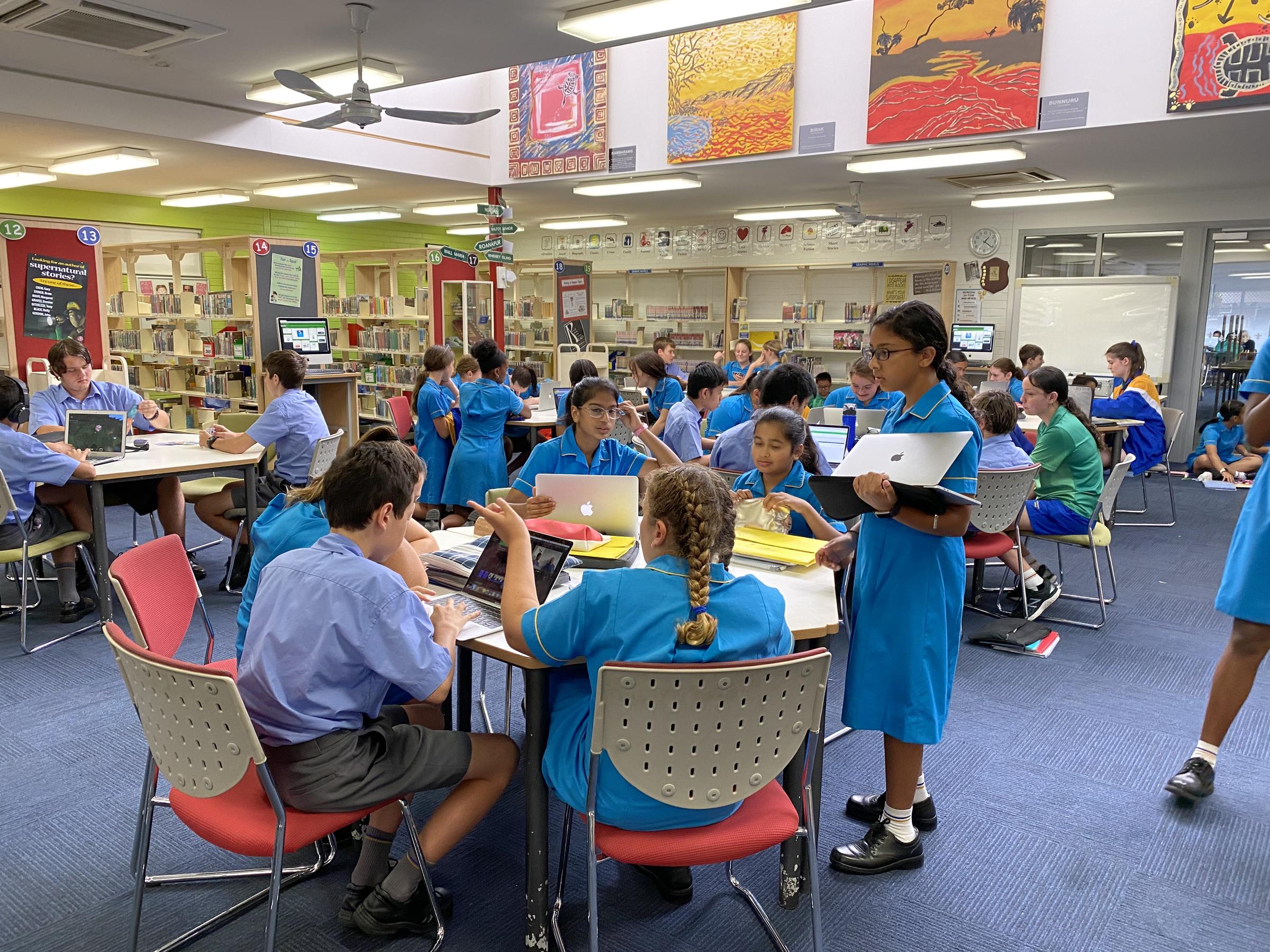Dean of Studies

How to be a study super hero in three simple steps
How do we stay focused on what we are doing? In an article from The New York Times in 2019*, Tim Herrara interviews Cal Newport, Associate Professor in Computer Science from Georgetown University on deep work versus shallow work. In the article, Herrara notes the numerous distractions that divide his attention and ultimately limit his ability to focus and work productively and efficiently:
“Here’s what my browser generally looks like: work email in the left tab, always open. Twitter in the next one, always open. A few Google Docs tabs with projects I’m working on, followed by my calendar, Facebook, YouTube, this publication’s website and about 10 stories I want to read – along with whatever random shiny thing comes across my desktop. (Not to mention my iPhone constantly nagging me, though I’ve mostly fixed that problem.)”
This situation is far from unique in many workplaces, and now in many schools. In order for us to work without distraction, complete homework or study tasks and use our limited resource (time) well, we need to actively remove these types of distractions, as they drag our attention away. This psychological effect is known as attention residue. As Professor Newport explains, attention residue can "reduce your cognitive (thinking) capacity for a non-trivial amount of time before it clears''. The understanding of this is that when you constantly make quick checks of various devices, emails, articles or videos, you keep yourself in a persistent state of attention residue, and your brain’s capacity to make decisions, begins to fatigue much like a muscle fatigues from constant effort.
For students to be able to build their capacity and ability to focus and study efficiently, the following actions are encouraged:
- Shutdown multiple tabs and browsers (including YouTube)
- Remove other devices such as phones, or at least turn them off or hand them to someone else to look after
- When deep concentration is required to understand a concept, fact or idea, try removing internet access as well
For many students, these require practice in order to build up to become a new habit. The good news is, the more a student persists, the easier it becomes (and less mentally draining). As Professor Newport says: “Concentration is like a super power in most knowledge pursuits. If you take time to cultivate this power, you’ll never look back.”
Examination Timetable (Year 10)
| Day | Date | Exam | Time |
Thursday Friday Monday
Tuesday Wednesday Thursday Friday
| 19 November 20 November 23 November
24 November 25 November 26 November 27 November | English Religion Mathematics Exam Catch-Up Humanities Science Japanese Exam Catch-Up | 9.00am – 10.50am 9.00am – 10.50am 9.00am – 10.50am 1.30pm – 3.20pm 9.00am – 10.50am 9.00am – 10.50am 11.10am – 12.55pm 1.30m – 3.20pm
|
Examination Timetable (Year 9)
| Day | Date | Exam | Time |
Thursday Friday
Monday Tuesday
Wednesday
| 26 November 27 November
30 November 1 December
2 December | Science English Japanese Religion Humanities Italian Mathematics | 9.00am – 10.50am 9.00am – 10.50am 1.30pm – 3.20pm 1.30pm – 3.20pm 9.00am – 10.50am 1.30pm – 3.20pm 11.20am – 1.00pm |
Examination Guidelines
Any student who is unable to attend an examination due to illness or injury must inform the College as early as possible. Please note the following:
- A medical certificate must be provided upon return to the College.
- The subject teacher and/or Head of Learning may allow a student to attend and complete a scheduled ‘Catch-up’ Examination. A student may also be referred to the Dean of Studies if required.
All Year 10 students must arrive at the College 20 minutes prior to the commencement of the examination and all bags, mobile phones, smart watches and other devices must remain in the student’s locker.
Any students with special provisions for the examinations must place their Purple Card on the desk in the examination venue. If a student has a provision for Extra Time, then all effort should be made for the student(s) to commence their examination first, and ensure that their finish time coincides with all other students.
Please check and ensure that you bring all required/permissible materials to your examinations, as students are allowed to provide a water bottle with all labels/markings removed to a maximum volume of 750ml. Students are permitted to use the toilet only after 45 minutes and not in the final 30 minutes. (Students with specific medical provisions may be exempted)
Mr R Dowling (Dean of Studies)
